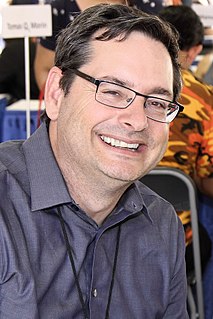A Quote by Dale Jamieson
A great deal of our math, science, philosophy, and everyday behavior presupposes that stability and equilibria are the "default" states, and everything else involves some "perturbation." This is a mental model, a conceptual frame, a tacit belief, a presupposition - whatever you want to call it.
Related Quotes
When I got to college, I planned to be a math major, and, in addition to signing up for some math courses, I decided to take some philosophy. Quite by chance, I took a philosophy of science course in which the entire semester was devoted to reading Locke's Essay. I was hooked. For the next few semesters, I took nothing but philosophy and math courses, and it wasn't long before I realised that it was the philosophy that really moved me.
The necessary precondition for the birth of science as we know it is, it would seem, the diffusion through society of the belief that the universe is both rational and contingent. Such a belief is the presupposition of modern science and cannot by any conceivable argument be a product of science. One has to ask: Upon what is this belief founded?
The steady states of the fluid matrix of the body are commonly preserved by physiological reactions, i.e., by more complicated processes than are involved in simple physico-chemical equilibria. Special designations, therefore, are appropriate:—“homeostasis” to designate stability of the organism; “homeostatic conditions,” to indicate details of the stability; and “homeostatic reactions,” to signify means for maintaining stability.
As participants in a mobile culture, our default is to move. God embraces our broken world, and I have no doubt that God can use our movement for good. But I am convinced that we lose something essential to our existence as creatures if we do not recognize our fundamental need for stability. Trees can be transplanted, often with magnificent results. But their default is to stay.
Fantasy involves that which general opinion regards as impossible; science fiction involves that which general opinion regards as possible under the right circumstances. This is in essence a judgment call, since what is possible and what is not cannot be objectively known but is, rather, a subjective belief on the part of the reader.
But our society - unlike most in the world - presupposes that freedom and liberty are in a frame of reference that makes the individual, not government, the keeper of his tastes, beliefs, and ideas. That is the philosophy of the First Amendment; and it is this article of faith that sets us apart from most nations in the world.
The second noble truth states that we must discover why we are suffering. We must cultivate the courage to look deeply, with clarity and courage, into our own suffering. We often hold the tacit assumption that all of our suffering stems from events in the past. But, whatever the initial seed of trauma, the deeper truth is that our suffering is more closely a result of how we deal with the effect these past events have on us in the present.

































